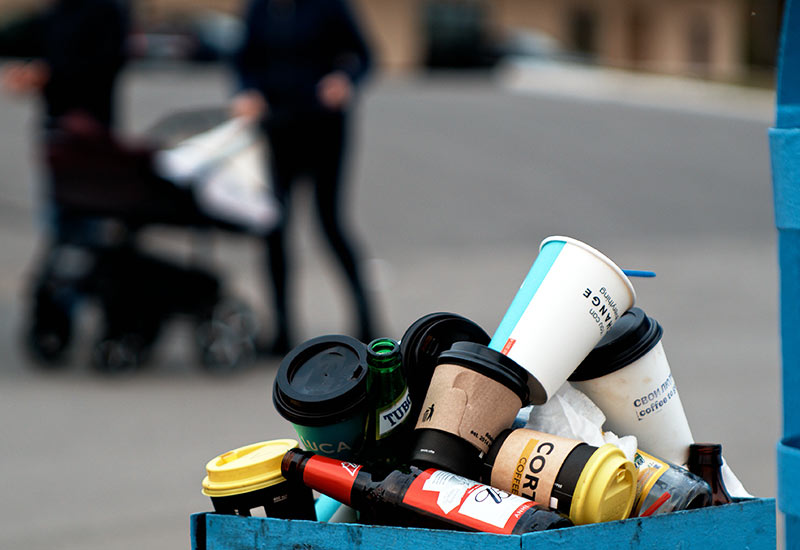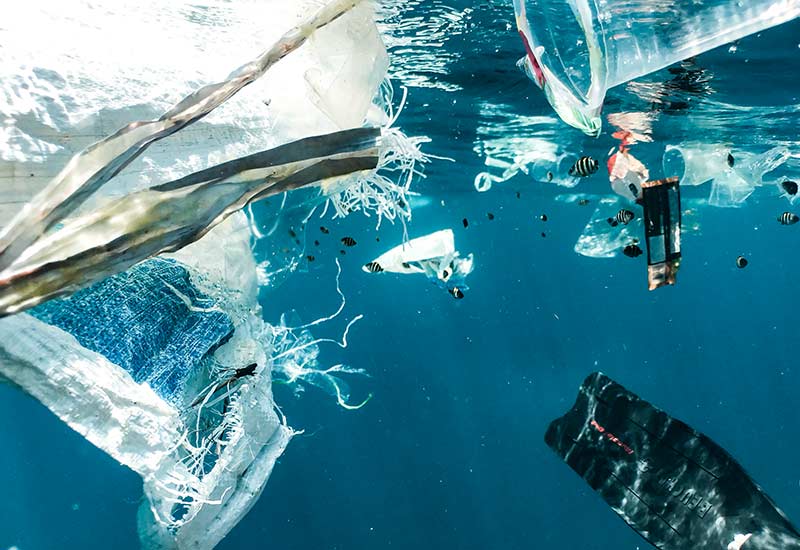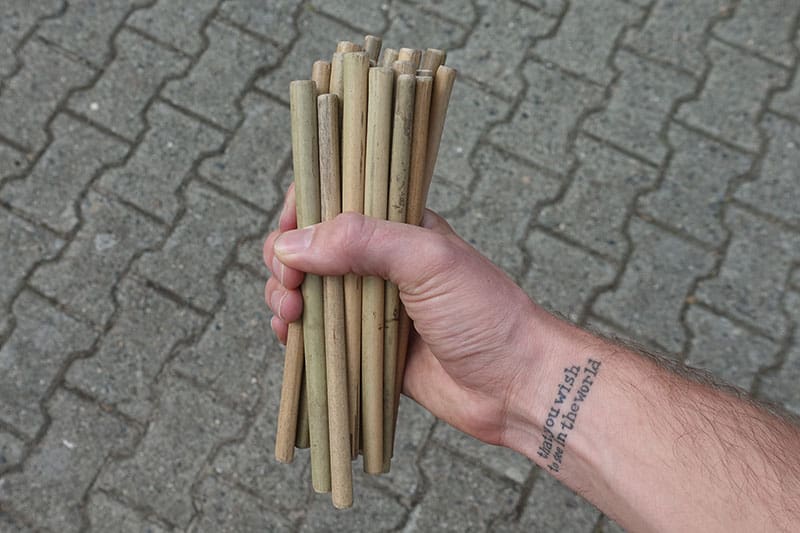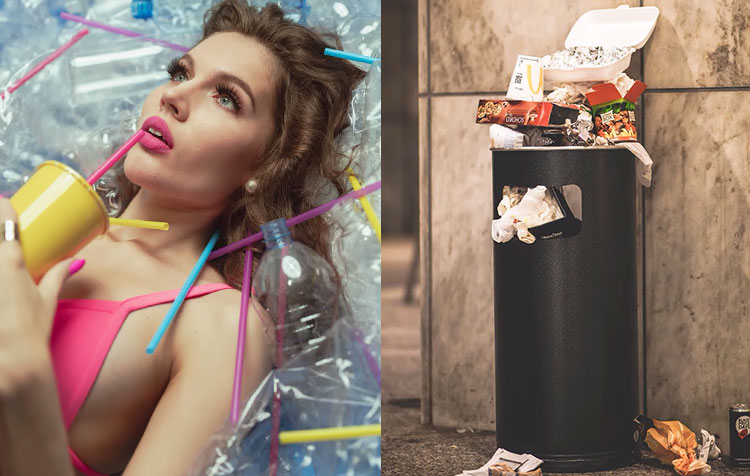What is a throwaway society? We have certainly all heard the term before. It comes up especially when we talk about the waste in the environment, short-lived disposable items or the disposal of things that are actually still functional. But what exactly does it mean?
In this article I would like to show you what characterizes a throwaway society, what exact causes and consequences it brings with it and what each of us can do against it. I'll say one thing right away: When a society lives in abundance, this unfortunately does not remain without consequences for people, nature and the animal world. Let's go!
Here you can find a short overview in advance:
Definition: What is a throwaway society?
A throw-away society (also called an affluent society) is understood to be a Affluent society with throwaway mentality - a society in which material things that could still be used further or reused are only used briefly out of abundance and convenience, quickly disposed of and often bought again. Ultimately, it is a matter of (over-)quick disposal of material things.
The opposite of the throwaway society is the Circular Economy. The aim is to use natural raw materials for as long as possible in order to protect the environment.
Characteristics: How can you recognize a throwaway society?

Are we living in a throwaway society? And if so, how could we recognize that? It's difficult for me to describe a society in which Disposable products such as plastic bags, coffee-to-go cups or cotton pads enjoy surprisingly great popularity, not to be called a throwaway society.
While there are Lifehacks of our grandparents used to count on using an item for as long as possible because it was rare or very expensive, nowadays most people simply buy it new when it breaks. Precisely because it cheap and always available is. In the past, it was repaired and not thrown in the trash - because at that time people (in Germany) lived in a repair society and not in abundance.
At Abundance people live by simply throwing things that need to be repaired or are no longer needed in the trash because, for example, it is cheaper and less time-consuming to do so. This attitude of people - especially Western industrialized countries - is a extremely wasteful handling with the (limited) natural resources of the earth.
Statistics: What facts and figures underpin the throwaway society?
There is not only "repair society" or "throwaway society" - there is also a long process in between. Here I would like to present you with some valuable statistics that illustrate the extent of our (resource) wasteful lifestyle:
- Household waste generation on the rise: In 2000, the volume of typical household municipal waste was 37.6 million metric tons. For 2020, a waste volume of 46.1 million tons was determined - a significant increase. From 458 kilograms per inhabitant in 2000, to 554 kilograms per inhabitant in 2020.₁
- Packaging waste: German households mainly generate packaging waste. At 68 percent, packaging for food, beverages and pet food accounts for the largest share - but at the same time ties up only 12 percent of consumer spending.₂
- Food waste: Every year, around 55 kilograms of food are thrown away per capita in Germany - just under half of which is still edible and usable in principle.₃ Almost a third of current food consumption is therefore thrown away - and thus produced for free.₄ More facts on this can be found at Food waste statistics.
- …
Notice: These are just a few of many numbers that make the extent of our throwaway mentality more tangible. Do you know of any other statistics I should include here? If so, I look forward to your comment.
Causes: Why are we a throwaway society?
The change to an abundant society does not happen overnight. It is a constantly evolving process - whether in the positive or negative direction. Here I would like to briefly explain the reasons why throwaway societies are developing.
Increasing convenience and throwaway mentality
Man Disposes of things that are actually still functional or damagedinstead of repairing or selling them. Simply because it is less costly. Often the disposal even takes place in nature.
Production of cheap products
For many companies, manufactured goods are only profitable if they are produced in large quantities and as cheaply as possible. Cheaper production generates a lower durability and quality of goods, which is why food or clothing, for example, is thrown away more quickly.
Of course, this mindset has an extreme impact on end consumers: the cheaper and shorter-lived consumer goods are, the more likely people are to buy them. ready to throw away. You literally don't throw so much money out the window - and you can always buy the product again, if necessary.
Rapid, technological progress
Old products that do not enable the performance of newer versions are uninteresting for many people. This is especially true for technical devices, such as Smartphones or computers.
Disposable products
Whether drinking straws, cups or bags made of plastic - such disposable products are used for a few minutes and then thrown in the trash or into the environment. Very convenient, but in the long run also very expensive and harmful to the environment.
Fast trend changes
We humans strive for variety. New trends, designs and developments serve this desire with countless and preferably inexpensive products. For this reason the Fast Fashion Industry with short-lived cheap goods and new trends at what feels like weekly intervals. unfortunately so successful.
Damage done often not (directly) visible
Unfortunately, a year's worth of trash doesn't pile up right on our doorstep, as it is regularly picked up by local waste management companies.
Otherwise, the problem would probably be more tangible. And if we humans had to take away our garbage ourselves or pay extremely large amounts of money for it, we would probably live more resource friendly and produce less waste.But since our garbage is picked up by the garbage collection, it is gone and forgotten. Out of sight out of mind.
By the way, this also applies to the plastic waste that many people carelessly leave behind on the beach in their vacation paradise (called, by the way Littering), which then for example eaten by marine animals will die from it.
Easier availability of goods
Nowadays, consumer goods are not only cheaply produced and inexpensive to have - they can also be conveniently ordered online directly to your own front door become. This simplified consumption, which is perhaps beneficial for the economy but extremely harmful for the environment, is also a cause of the throwaway society.
Low reparability
Nowadays, technical devices such as smartphones, computers and household appliances in particular are built in such a way that it is difficult for users to repair them (or have them repaired), or only at extremely high cost. Ultimately, the Repair then more expensive than buying newThis makes people more inclined to throw away an item, ultimately creating new waste more quickly.
Tip: There are even manufacturers:inside who build their goods so that they break relatively quickly. At planned obsolescence you will learn everything you need to know about it.
Consumerism
Another cause of the wasteful consumer society is the pleasure of consumption. From a psychological point of view, buying new things is a kind of reward that fills us with happiness in the short term. However, many consumption decisions are made out of a spontaneous emotion, which is why the feeling of happiness quickly diminishes again - what remains is a product that may be thrown away. This phenomenon can be observed particularly well with fashion goods.
Tip: Does consumption make you happy or unhappy? In the linked post, I took a closer look at the psychology behind our consumption decisions.
Consequences: What problems does a throwaway society cause?

Of course, the life of a wasteful society that lives in abundance has consequences - especially for people, animals and the environment.
Here I would like to briefly explain some of the main consequences:
- Pollution: The throwaway society shows its ugly side above all in the form of the Garbage in the environment. Plastic, for example, is not biodegradable and basically stays in nature forever.
- Animals perish: According to NABU, the remnants of our throwaway society cost the lives of up to 135,000 marine mammals and around one million seabirds alone every year.₅
- Increased convenience: The increasing consumption of disposable products and the quick and easy purchase per click anchors an increased tendency towards convenience in our society - and exacerbates the throwaway mentality immensely.
- Climate change: A throwaway society is characterized by the mass production of consumer goods. Regardless of how necessary the individual goods actually are, CO2 is emitted during their production - a climate gas that is responsible for the global warming drives. If the products are disposed of (quickly), the CO2 emission has even happened without any real, justified benefit or sense.
- World hunger: Every year, around 1.3 billion tons of food actually end up in the dustbins of this world, even though there are 735 million hungry people on the planet at the same time.₆ The unequal distribution in combination with the resource-intensive Factory Farming are the main reasons why, today, there are still People starve must.
- …
Tip: Did you know that Efficiency in the land of milk and honey does not play a role? I explain why in the linked article.
Solutions: What to do about the throwaway society?

Now you know the massive problem of the "throwaway society." But how can it be solved? What can be done against consumerism?
Here I would like to present you some tips with which you can Change from an affluent society with a throwaway mentality to a "repair society support on a daily basis.
Internalize the benefits of sustainability, minimalism, frugalism, and mindfulness
Live more mindfully and in the future only buy new things that you really need. If you implement this plan, you will quickly find that you have more money in your wallet and more time for your friends - and ultimately produce significantly less waste.
You don't have to give up everything you enjoy! In the end, you simply minimize your consumption to the things that actually enrich you in the long run.
You can get helpful information about this in the following, further blog posts:
Live as waste-avoidant and plastic-free as possible
Of course, you can also actively shape the way out of the throwaway society by living as waste-avoidant as possible. The Zero Waste Lifestyle and the plastic-free lifestyle offer you a cornucopia of opportunities to do so.
Avoid buying new. Repair, buy second hand, borrow items or give them a second chance in a different function via upcycling. Replace disposable with reusable and say "no"When someone (at a trade show, for example) wants to give you promotional items that you don't actually need. There are so many ways and means to contribute to the solution of the "throwaway society" problem.
Tip: At Zero Waste for beginners you will get more useful tips!
Counteract the consequences
If you see trash in the environment, pick it up. Maybe you also feel like doing a joint Organize CleanUp in the neighborhood or in the Vacation garbage collection.
Really cool is also the new trend sport Plogging, where you jog and pick up trash at the same time. Either way, you do make the world a more beautiful place, inspire other people at the same time to imitate you - and bring attention to the garbage problem in our society.
Can you think of any other tips in the fight against the affluent society? Then I look forward to your comment.
Throwaway society: Better become part of the solution!

An abundant society with a throwaway mentality is the result of increased convenience. Increasing quantities of cheap and disposable products, the constant availability of material goods and the pleasure of consumption do the rest. The question is not whether we live in a throwaway society - but rather how we get out of it.
Everyone can do their part - by more consciously consuming what is really necessary. You will be surprised how good this change in your mindset will do you.
"Be the change that you wish to see in the world."
Mahatma Gandhi (more at Zero Waste Quotes)
I hope that I was able to provide you with helpful information about our throwaway society in this article. Do you have any questions, tips or suggestions on this topic? Then I look forward to your comments!
Stay sustainable,

PS: Unfortunately, a new purchase cannot always be avoided. Learn now in the next article how you can avoid such cases as much as possible. store sustainably online can. Good luck!
References:
₁ Federal Environment Agency: Waste generation (as of 13.10.2022), available at https://www.umweltbundesamt.de/daten/ressourcen-abfall/abfallaufkommen#siedlungsabfalle-haushaltstypische-siedlungsabfalle. [11.10.2023].
₂ Press and Information Office of the Federal Government: Putting an end to the throwaway society (as of 22.11.2016), available at https://www.bundesregierung.de/breg-de/aktuelles/schluss-mit-der-wegwerfgesellschaft-379762 [11.10.2023].
₃ René Boksch: Food Waste in Germany (as of Aug. 21, 2020), available at https://de.statista.com/infografik/16586/lebensmittelverschwendung. [11.10.2023].
₄ WWF Germany: The big throwaway (as of 13.09.2017), available at https://www.wwf.de/themen-projekte/landwirtschaft/ernaehrung-konsum/lebensmittelverschwendung/das-grosse-wegschmeissen. [11.10.2023].
₅ NABU Deutschland e.V.: Plastikmüll und seine Folgen, available at https://www.nabu.de/natur-und-landschaft/meere/muellkippe-meer/muellkippemeer.html. [11.10.2023].
₆ Deutsche Welthungerhilfe e.V.: Hunger: Spread, Causes & Consequences, available at https://t1p.de/ijuj [11.10.2023].









